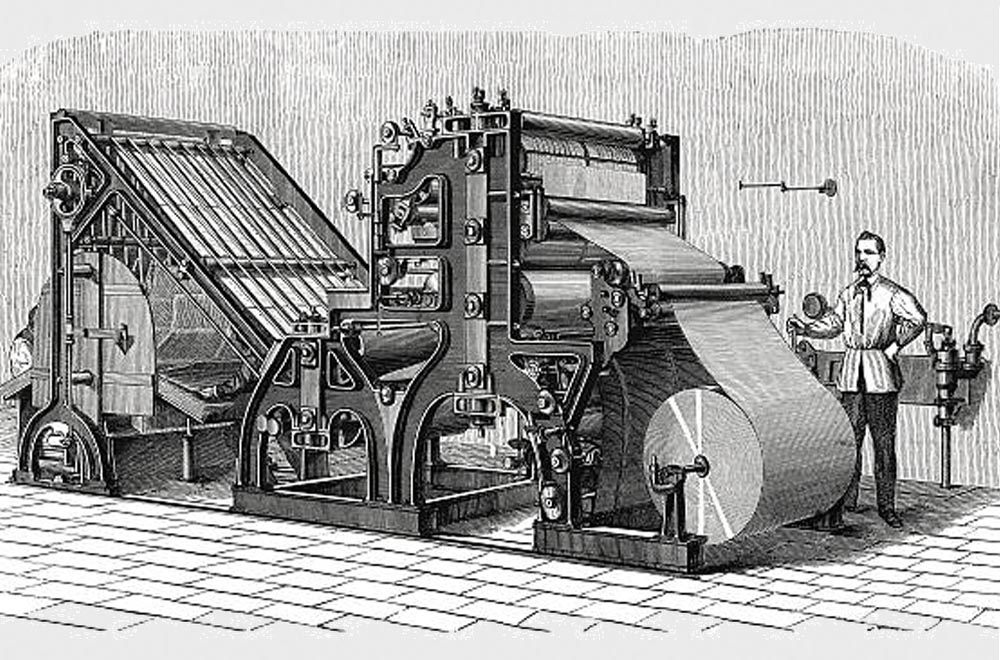Download (PDF, 3.18MB)
INTRODUCTION
Cultural evolution
Most species of animals evolve slowly, adjusting to changes in their environment through genetic changes. In humans, however, although slow genetic changes are also present, there is a much more rapid method of adjustment to changed circumstances: cultural evolution. This rapid method of evolution was greatly aided by the invention of writing, which helped humans to hand down and spread new ideas and inventions. Thus, literacy became the foundation on which rapidly-developing human society was built.
Writing was developed in many parts of the world
Writing was developed independently in many parts of the world, in China, in Mesopotamia, in Egypt, and in Mesoamerica. The First Peoples of North and South America even had a method of keeping records using knotted strings, as well as decorative belts of Wampum.
The invention of printing
Paper was a Chinese invention. “India ink” was also iunvented in China, and the first known printed book. the “Diamand Sutra”, was produced in China. However, printing with movable type was never successful because of the enormous number of characters in the Chinese language. Thus printing, a Chinese invention, was left to revolutionize the West.
In the 15th Century A.D., Johannes Gutenberg of Mainz, Germany, developed a practical method of printing with movable type. This invention revolutionized the western world. Scientific and technilogical progress became rapid. The population increased so much that it led Europeans to acquire colonies.
The Enlightenment
The “Enlightenment” or ‘The Age of Reason” was made possible by the invention of printing. Sir Isaac Newton’s orderly cosmos, where the planets circled the sun following fixed laws of motion and gravitation, was the model for rationality during this period. But it was printing that made this possible.
Newton himself said, “If I have seen farther than others, it is because I have stood on the shoulders of giants”. He was referring to Copernicus, Galileo, Tycho Brahe, and Johannes Kepler, but without the invention of printing, he could not have read their works.
Universal education Most countries of the world aim at some level of education for their entire population. Hoever, there are a few where, even today, female education is discouraged. For example, in Pakistan on October 9, 2012, 15-year-old Malala Yousafzai was shot by the Taliban, whose aim it was to supress female education.
Computers revolutionize society
In the history of literacy, the invention of computers is as important as the invention of writing and the invention of printing. A chapter in this book is devoted to the invention of computers, starting with the hand calculators of Pascal and Leibniz, the mechanical calculators of Babbage, and electronic calculators, first with vacuum tubes and later with transistors. The social impact of the computer revolution have also been immense. One speaks of “computer literacy”. For example, girls in rural India complain that it is difficult for them to obtain computer literacy.
Read the entire book above or download it here.
The pdf files of John’s books may be freely downloaded and circulated from here, here and here.
We thank John Scales Avery, a renowned intellectual, EACPE board member, and theoretical chemist at the University of Copenhagen, for giving us permission to reproduce his latest book for EACPE.


